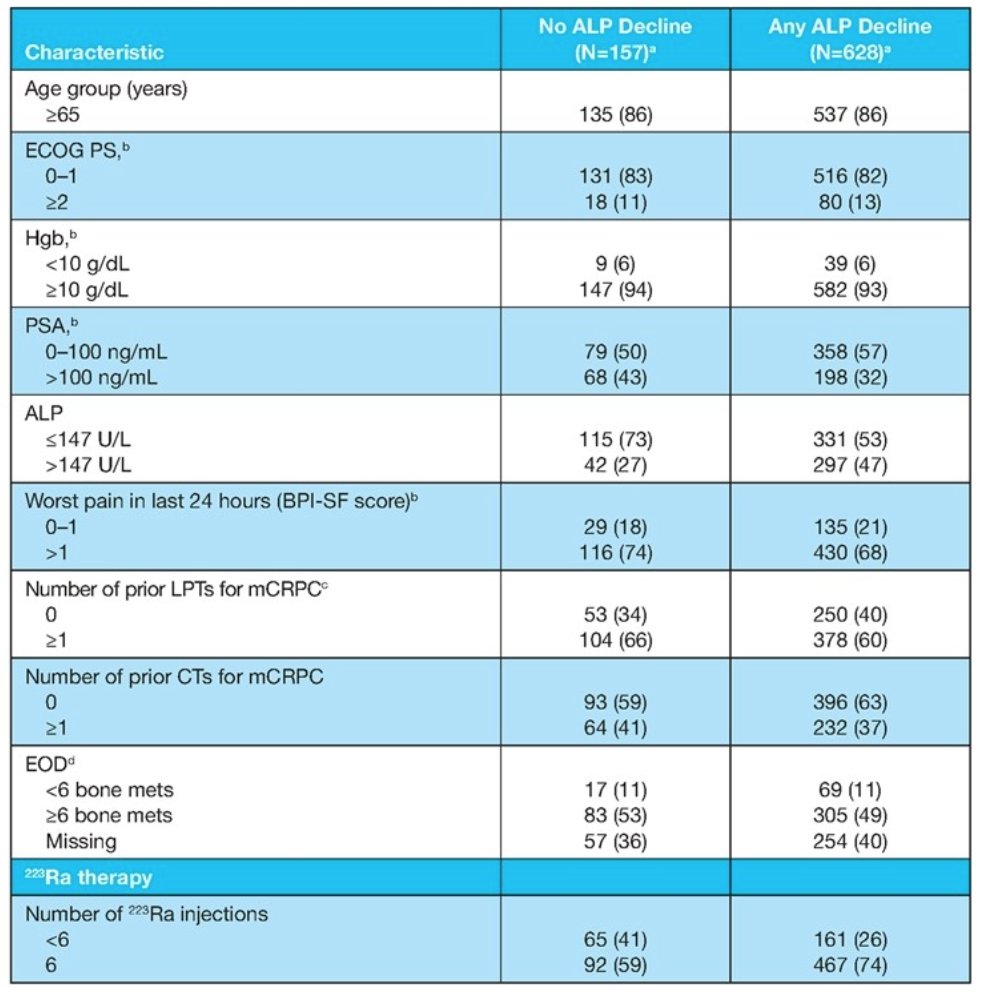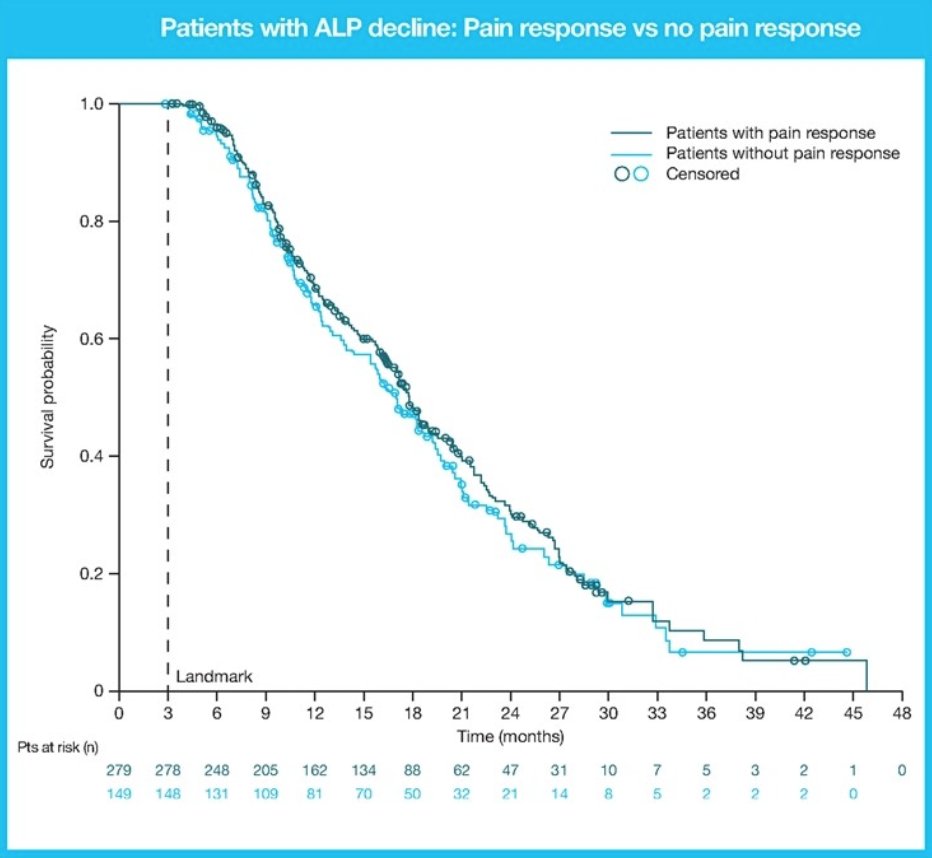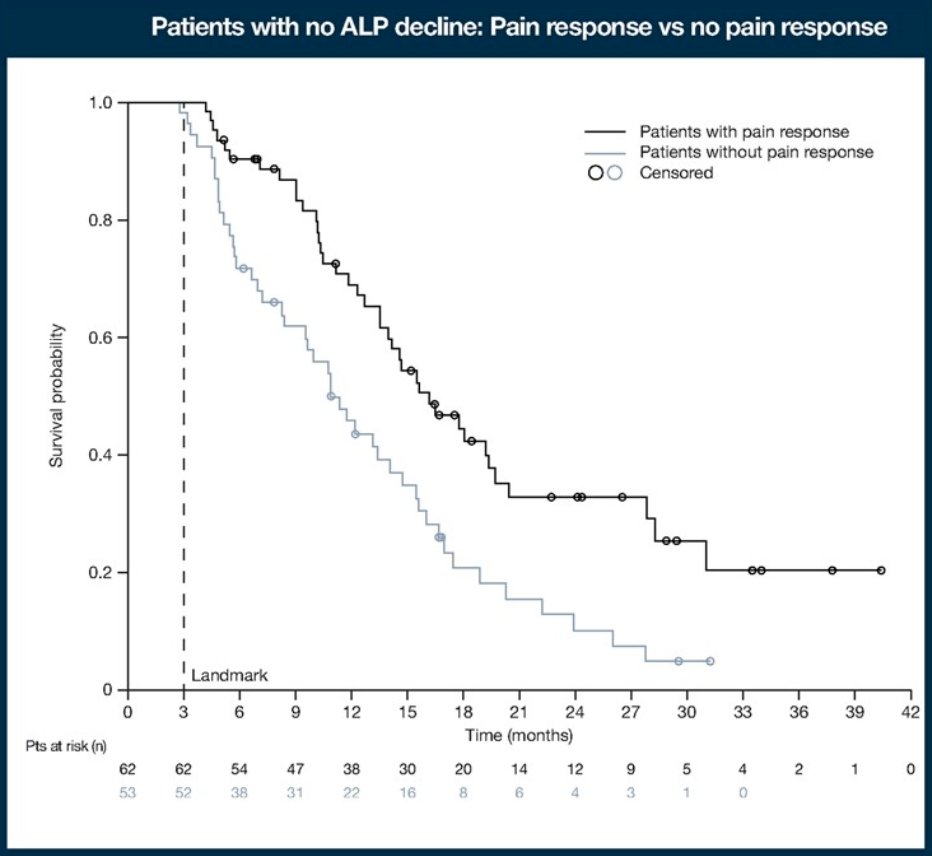(UroToday.com) The 2022 European Society of Medical Oncology (ESMO) annual meeting featured a prostate cancer session, including a presentation by Dr. Joe O'Sullivan discussing alkaline phosphatase (ALP) decline and pain response as markers for overall survival (OS) in patients with metastatic castration-resistant prostate cancer (mCRPC) treated with radium-223 in the REASSURE study.
Based on the ALSYMPA trial, it was established that radium-223 prolongs OS in patients with bone-predominant mCRPC.1 During the development of bone metastasis, prostate cancer cells and cancer-associated osteoblasts secrete elevated levels of ALP. Furthermore, a population-based analysis of patients with mCRPC showed that meaningful pain responses were associated with radium-223 therapy.2 At ESMO 2022, Dr. O’Sullivan and colleagues evaluated potential associations of ALP decline and pain response with OS during radium-223 treatment in the global, real-world REASSURE study. The main aim was to define patient subgroups with different survival outcomes, which may help improve disease management strategies.
Patients treated with radium-223 were grouped by any ALP decline vs no decline and pain response vs no response, based on ALP levels at baseline and week 12, and the best pain response during radium-223 treatment. Pain levels were assessed using the Brief Pain Inventory-Short Form (BPI-SF). Cox proportional hazard models with 95% confidence intervals (CIs) were provided for associations between ALP decline and pain response with OS.
Data were from 779 patients with ALP measurements at both baseline and week 12. In total, 628 (80%) patients had a decline in ALP and 157 (20%) had no decline:

Patients with ALP decline had longer OS than patients with no decline (HR 0.739, 95% CI 0.601–0.916). For patients who had pain at baseline (BPI-SF of ≥2) and ALP decline, OS was similar regardless of pain response (HR 0.915, 95% CI 0.717-1.173). In contrast, for patients with pain at baseline and no ALP decline, OS was longer in patients with pain response than without (HR 0.498, 95% CI 0.322–0.768). For patients who had no pain at baseline (BPI-SF of 0 or 1), OS was longer in patients who had ALP decline compared with those without (HR 0.581, 95% CI 0.354–1.007). The stratified Kaplan-Meier curves for overall survival are as follows:




Dr. O’Sullivan concluded his presentation discussing ALP decline and pain response as markers for OS in patients with mCRPC treated with radium-223 in the REASSURE study with the following concluding statements:
- ALP decline after 12 weeks of radium-223 treatment was associated with longer survival
- In patients without ALP decline, pain response was associated with longer OS, compared with those without a pain response
- The shortest OS was observed in patients with baseline pain, no ALP decline, and no pain response, while the longest OS was seen for patients who had no pain at baseline and had ALP decline
- These results may help physicians and patients monitor markers of pain and ALP decline during radium-223 treatment that may be associated with survival, and therefore may help to support clinical decisions
Presented by: Joe O'Sullivan, MD FRCPI, FFRRSCI, FRCR, School of Medicine, Dentistry And Biomedical Sciences, Queen's University Belfast, Belfast, UK
Co-Authors: D. Heinrich2, E. Castro Marcos3, S. George4, D.Y. Song5, S. Dizdarevic6, S. Baldari7, M. Essler8, I. Jan de Jong9, S. Lastoria10, P.G. Hammerer11, B. Tombal12, N.D. James13, F. Verholen14, J. Meltzer15, P. Sandström15, O. Sartor16
Written by: Zachary Klaassen, MD, MSc – Urologic Oncologist, Assistant Professor of Urology, Georgia Cancer Center, Augusta University/Medical College of Georgia, @zklaassen_md on Twitter during 2022 European Society of Medical Oncology (ESMO) Annual Hybrid Meeting, Paris, FR, Fri, Sept 9 – Tues, Sept 13, 2022.
References:
- Parker C, Nilsson S, Heinrich D, et al. Alpha emitter radium-223 and survival in metastatic prostate cancer. N Engl J Med 2013;369(3):213-223.
- Parimi S, Bondy S, Tsang E, et al. Pain response in a population-based study of radium-223 (Ra223) for metastatic castration-resistant prostate cancer. Can Urol Assoc J. 2019 Oct;13(10):E311-E316.


